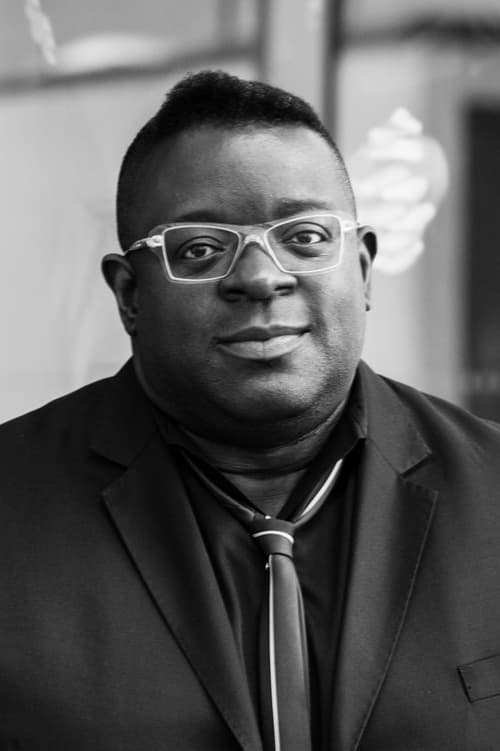Isaac Julien
出生 : 1960-02-21, East End, London, England, UK
略歴
Filmmaker and installation artist, Isaac Julien was born in 1960 in London, where he currently lives and works. His multi-screen film installations and photographs incorporate different artistic disciplines to create a poetic and unique visual language. His 1989 documentary-drama exploring author Langston Hughes and the Harlem Renaissance titled Looking for Langston garnered Julien a cult following while his 1991 debut feature Young Soul Rebels won the Semaine de la Critique prize at the Cannes Film Festival.
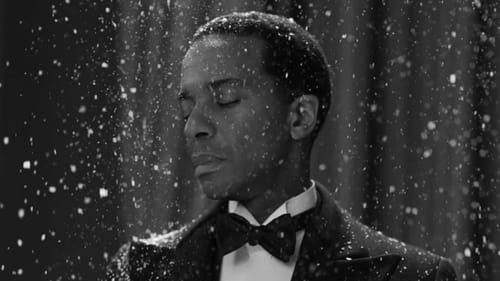
Writer
An immersive installation by the artist and filmmaker. "Coda" to Looking for Langston.

Director
An immersive installation by the artist and filmmaker. "Coda" to Looking for Langston.

Director
Isaac Julien's contribution to Documenta Platform6 in memory of Okwui Enwezor.

Director
The multiple screen installation and photographic series A Marvellous Entanglement (2019) traverses a collection of Lina Bo Bardi’s most iconic buildings, offering a meditation on the work and legacy of the visionary modernist architect and designer (1914–1992).
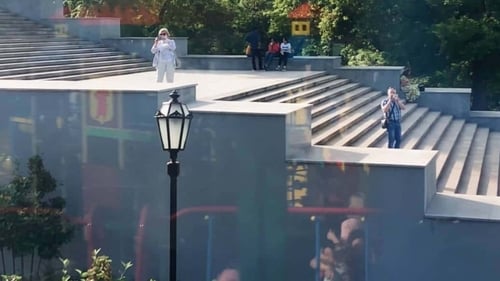
Director
Over 30 filmmakers and friends of Strand Releasing have come together to honor the company’s indelible contribution to independent cinema over the past thirty years. The participating filmmakers have each created a short film for the project, all shot on iPhones.

Jim Moir (aka Vic Reeves) explores Video Art, revealing how different generations ‘hacked’ the tools of television to pioneer new ways of creating art that can be beautiful, bewildering and wildly experimental.

Director
Isaac Julien's visionary film Lessons of the Hour explores the incomparable achievements of Frederick Douglass, America’s foremost abolitionist figure. After escaping slavery in Maryland, Douglass gained prominence on the abolitionist circuit as an extraordinary orator, becoming the most photographed American of the 19th century. Julien’s project is informed by some of Douglass’s most important speeches, such as Lessons of the Hour, What to the Slave Is the 4th of July?, and Lecture on Pictures, the latter being a text that connects picture-making and photography to his vision of how technology influences human relations. Julien's work gives expression to the zeitgeist of Douglass’s era, his legacy, and the ways in which his story may be viewed through a contemporary lens. The presentation also includes photographs and tintypes produced in conjunction with the film.

Himself
Documentary celebrating the LGBTQ contribution to the arts in Britain in the 50 years since decriminalisation. It features interviews with leading figures from right across the arts in Britain, including Stephen Fry, David Hockney, Sir Antony Sher, Alan Cumming, Sandi Toksvig, Jeanette Winterson, Will Young and Alan Hollinghurst, and it explores the distinctive perspectives and voices that LGBT artists have brought to British cultural life.

Director
Playtime’s cosmopolitan spectacle, presented in a kaleidoscopic montage across seven large screens, interconnects the lives of its archetypical characters—hedge fund managers and art world players in London; a photographer in Reykjavik; and a Filipina houseworker in Dubai—each of whom is based on a real-life individual directly affected by the market collapse.

Director
TEN THOUSAND WAVES is a 9-screen installation shot on location in China. The work poetically weaves together stories linking China’s ancient past and present. Through an architectural installation, the work explores the movement of people across countries and continents and meditates on unfinished journeys. Conceived and made over four years, TEN THOUSAND WAVES sees Julien collaborating with some of China’s leading artistic voices, including the legendary siren of Chinese cinema Maggie Cheung; rising star of Chinese film Zhao Tao; poet Wang Ping; master calligrapher Gong Fagen; artist Yang Fudong; acclaimed cinematographer Zhao Xiaoshi; and a 100-strong Chinese cast and crew. The film’s original musical score is by fellow East Londoner Jah Wobble and The Chinese Dub Orchestra and contemporary classical composer Maria de Alvear.

Executive Producer
Derek, in chronological order, records the work and life that stands at the foot of Derek Jarman's humour and spirit of being an artist. The filmmaker and actress, Isaac Julien and Tilda Swinton respectively, have produced and narrated a film on his life whereby the use of language is perpetuated to give some type of palpable meaning to British audiences alone, and to their own personal relationship with him.

Director
Derek, in chronological order, records the work and life that stands at the foot of Derek Jarman's humour and spirit of being an artist. The filmmaker and actress, Isaac Julien and Tilda Swinton respectively, have produced and narrated a film on his life whereby the use of language is perpetuated to give some type of palpable meaning to British audiences alone, and to their own personal relationship with him.

Director
Isaac Julien’s 2007 multi-screen installation Western Union Small Boats is a work where individual voyages, journeys and travel are explored locally, in order to allude to the global scenario.

Director

Director
Fantôme Créole is a four-screen film installation that juxtaposes Arctic and African landscapes as it combines two films: True North, filmed in the Artic landscapes of Iceland, and Fantôme Afrique, filmed in Burkina Faso. Fantôme Créole juxtaposes Arctic and African landscapes as it combines two films: True North (2004), loosely based on the story of black explorer Matthew Henson (1866-1955), who accompanied Robert Peary in a pioneering expedition to the North Pole; and Fantôme Afrique (2005), shot in Burkina Faso.

Director
Fantôme Afrique, weaves cinematic and architectural references through the rich imagery of urban Ouagadougou, the centre for cinema in Africa, and the arid spaces of rural Burkina Faso, and is punctuated by archival footage from early colonial expeditions and landmark moments in African history. Renowned choreographer and dancer Stephen Galloway (Ballet Frankfurt) and actor Vanessa Myrie (Baltimore) figure as ‘trickster/phantom’ and ‘witness’ in this carefully composed meditation on the denationalised, de-territorialised spaces born of the encounters between local and global cultures, where the ghosts of history linger amid the realities of the day

Director
Loosely inspired by the story of the black American explorer, Matthew Henson (1866-1955) who accompanied Robert Peary and was one of the first people to reach the North Pole, later writing an account of his experience. In this fragmented narrative, Julien contemplates on ideas and histories of the hierarchical as well as in the struggling figure we find a succinct metaphor of endless traversing, symbolizing the voyage of the modern that has to be experienced by others.

Director
Encore II (Radioactive) is a short film study inspired by a character from the writings of Octavia Butler, an African American science fiction writer, best known for her recurring exploration of genetic manipulation, contamination and hybridity and David Bowie’s Starman. The film re-digitises footage shot in Iceland and northern Sweden from Julien’s film True North, a work based on the story of African-American explorer Matthew Henson, one of the key members of Robert E. Peary's 1909 Arctic expedition, and arguably the first individual to reach the North Pole. In Encore II (Radioactive), the protagonist is recast as a cyborg played by Vanessa Myrie. Using super-8 footage from Julien’s earlier video experiments which were shot in 1980, whilst he was studying at St. Martin’s School of Art, the film manipulates the Icelandic landscape and its surroundings, imbuing them with a visual and sonic electronic aura that dislocates the setting from a specific time and place.

Director
Baltimore deals with the cinematization of video art, on the one hand, and a queering and racing of the museum, on the other. The film installation works as an intervention that attempts to address the creolising vision in the space of the gallery.
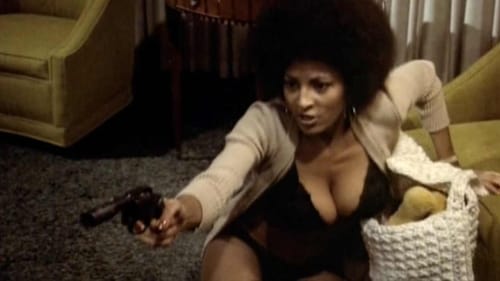
Director
With archive film clips and interviews, this brief look at a frequently overlooked historical period of filmmaking acts as an introduction rather than a complete record. It features interviews with some of the genre's biggest stars, like Fred Williamson, Pam Grier, and Richard Roundtree. Director Melvin Van Peebles discusses the historical importance of his landmark film Sweet Sweetback's Baadasssss Song. For a contemporary perspective, the excitable Quentin Tarantino offers his spirited commentary and author/critic bell hooks provides some scholarly social analysis.

Writer
Paradise Omeros delves into the fantasies and feelings of "creoleness" - the mixed language, the hybrid mental states and the territorial transpositions that arise when one lives in multiple cultures.

Director
Paradise Omeros delves into the fantasies and feelings of "creoleness" - the mixed language, the hybrid mental states and the territorial transpositions that arise when one lives in multiple cultures.

Director
An experimental dance piece revealing the complex dynamics between two dancers and another woman.

Director
Video installation by Isaac Julien.

Director
Shot in Texas, Isaac Julien's Turner Prize nominated film installation Long Road to Mazatlán reflects upon the construction of masculinity through a choreographed mise-en-scène.

Screenplay
Explores the life and work of the psychoanalytic theorist and activist Frantz Fanon who was born in Martinique, educated in Paris and worked in Algeria. Examines Fanon's theories of identity and race, and traces his involvement in the anti-colonial struggle in Algeria and throughout the world.

Director
Explores the life and work of the psychoanalytic theorist and activist Frantz Fanon who was born in Martinique, educated in Paris and worked in Algeria. Examines Fanon's theories of identity and race, and traces his involvement in the anti-colonial struggle in Algeria and throughout the world.

Self - Panelist
This is an experimental documentary chronicling the March 1995 groundbreaking conference on lesbian and gay sexualities in the African diaspora. The conference brought together an array of dynamic scholars, activists and cultural workers including Essex Hemphill, Kobena Mercer, Barbara Smith, Urvashi Vaid and Jacqui Alexander to interrogate the economic, political and social situations of diasporic lesbians, gay men, bisexual and transgendered peoples. The video brings together the highlights of the conference and draws connections between popular culture and contemporary black gay media production. The participants discuss various topics: Black and queer identity, the shortcomings of Black nationalism, and homophobia in Black communities. Drawing upon works such as Isaac Julien's "The Attendant" and Jocelyn Taylor's "Bodily Functions", this documentary illuminates the importance of this historic conference for Black lesbians and gays.

Director
An exploration of the homophobia expressed by reggae and rap artists againts gays and lesbians. Inludes interviews with rappers Shabba Ranks and Buju Banton, who cite religious reasons for their particular brand of homophobia.

Director
Memory mixes with desire as a museum attendant is caught up in sado-masochistic fantasies inspired by a 19th century painting of slaves in chains called Scene on the coast of Africa. The man remembers his past as a singer and delivers Dido's lament from Purcell's opera.

Novel
Erotic images of Black men with voice over text by Isaac Julien and Kobena Mercer question the objectification of the Black male image by white photographers.

Self
A two part documentary that details the contribution of black and Asian people to television history from the birth of television in 1936 to 1992. Interviewees include: Pearl Connor, Thomas Baptiste, Lenny Henry, Norman Beaton, Horace Ové, Carmen Munroe, and Stuart Hall.

Director
A two part documentary that details the contribution of black and Asian people to television history from the birth of television in 1936 to 1992. Interviewees include: Pearl Connor, Thomas Baptiste, Lenny Henry, Norman Beaton, Horace Ové, Carmen Munroe, and Stuart Hall.
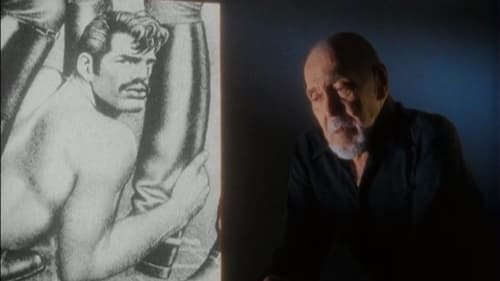
Himself
Tom of Finland is one of the gay world's few authentic icons. His drawings have had an enormous influence on gay identity. Tom's ultimate leather men are known and seen everywhere. They are symbols of gay pride and friendship. The documentary includes some titillating 'enactments' inspired by Tom's art work.
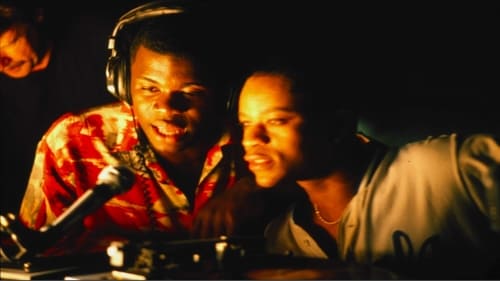
Writer
Two disc jockeys have a friend's murder to solve in the fringe-group melting pot of 1977 London.

Director
Two disc jockeys have a friend's murder to solve in the fringe-group melting pot of 1977 London.

Screenplay
A black and white, fantasy-like recreation of high-society gay men during the Harlem Renaissance, with archival footage and photographs intercut with a story. A wake is going on, with mourners gathered around a coffin. Downstairs is an elegant bar where tuxedoed men dance and talk. One of them has a dream in which he comes upon Beauty, who seems to reject him, although when he awakes, Beauty is sleeping beside him. His story and his visits to the jazz and dance club are framed by voices reading from the poetry and essays of Hughes and others. The text is rarely explicit, but the freedom of gay Black men in the 1920s in Harlem is suggested and celebrated visually.

Director
A black and white, fantasy-like recreation of high-society gay men during the Harlem Renaissance, with archival footage and photographs intercut with a story. A wake is going on, with mourners gathered around a coffin. Downstairs is an elegant bar where tuxedoed men dance and talk. One of them has a dream in which he comes upon Beauty, who seems to reject him, although when he awakes, Beauty is sleeping beside him. His story and his visits to the jazz and dance club are framed by voices reading from the poetry and essays of Hughes and others. The text is rarely explicit, but the freedom of gay Black men in the 1920s in Harlem is suggested and celebrated visually.

Assistant Director
A bittersweet and nostalgic short drama illustrating the spirit of modern families touched by the experience of migration. Miss T., from the Caribbean, lives alone in her one-room apartment, her children and husband having left her to pursue new dreams. When she dies her family and friends gather at her wake. The tapestry of words that interweave the drama convey the fragments of a life lived, but only partly remembered.

This highly stylized short asserts sexual desire over fear in gay romantic relationships.

Producer
This highly stylized short asserts sexual desire over fear in gay romantic relationships.

Director
This highly stylized short asserts sexual desire over fear in gay romantic relationships.
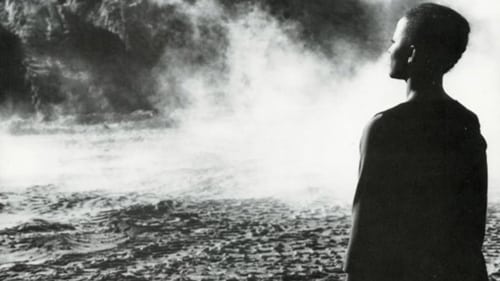
Writer
Co-directed by Blackwood and Julien, the first full-length feature film by Sankofa Film and Video offers a radical and necessary interrogation into what constitutes 'post-colonial' identity at a time of political and social restlessness in Britain. Set within an isolated desert landscape contrasted with recognizable scenes of the intensity of family life, this vanguard work demonstrates the richness and variety of the black experience; it is a poetic and hard-hitting commentary on the complexities of race, gender and sexuality.

Director
Co-directed by Blackwood and Julien, the first full-length feature film by Sankofa Film and Video offers a radical and necessary interrogation into what constitutes 'post-colonial' identity at a time of political and social restlessness in Britain. Set within an isolated desert landscape contrasted with recognizable scenes of the intensity of family life, this vanguard work demonstrates the richness and variety of the black experience; it is a poetic and hard-hitting commentary on the complexities of race, gender and sexuality.
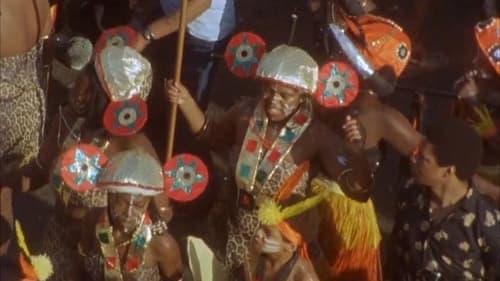
Director
Territories is an experimental documentary about the Notting Hill Carnival. It locates the event within the struggle between white authority and black youth, in this case over the contested spaces of the carnival, and reflects on its history as symbolic act of resistance. The film makes the case using montage: cutting carnival scenes with archive news reports - police surveillance to rioting in the street - and crossing looks of desire with alienation, from police to reveller, woman to man, man to man. Add to this a disembodied, political critique and trenchant images of police violence and the audience soon becomes aware that the documentary itself is part of the resistance.

Director
Who Killed Colin Roach? is Isaac Julien's first film, which reflects upon the death of Colin Roach, a 23 year old who was shot at the entrance of a police station in East London, in 1982. Even though the police claimed Roach had commited suicide, evidence showed otherwise. Isaac Julien says that this work is essentially a response to the riots, an answer to certain fixed ways of looking at black cultures, but also at those ways we might feel about ourselves.

Self
The formation of the Gay Black Group was a landmark in gay black history. Meeting at Gay's the Word, a bookshop in Bloomsbury, London, it provided a sounding board and support for gay and black communities of the 1980s.

Self
This feature-length big screen documentary tells the riotous inside story of the infamous sex, drugs and rock 'n' roll repertory cinema which inspired a generation during Britain's turbulent Thatcher years.
